
~~~~~~~~~~~~~~~~~~~~~~~~~~~~~~~~~~~~~~~~~~~~~~~~~~~~~~~~~~~~~~~~~~~~~~~~~~~~~~~~~~~~~~McKenna Ink Thesis Editing Service
To add your comments click here.

~~~~~~~~~~~~~~~~~~~~~~~~~~~~~~~~~~~~~~~~~~~~~~~~~~~~~~~~~~~~~~~~~~~~~~~~~~~~~~~~~~~~~~McKenna Ink Thesis Editing Service
~~~~~~~~~~~~~~~~~~~~~~~~~~~~~~~~~~~~~~~~~~~~~~~~~~~~~~~~~~~~~~~~~~~~~~~~~~~~~~~~~~~~~~
To add your comments click here.
Famous last words and deathbed witticisms
Steven Wright once said that he wished the first word he spoke was "quote." Then, right before he died he could say, "Unquote." While that would be the greatest last word ever uttered, we have to be realistic here and admit no one could be that cool, lest the universe implode. Nonetheless, here are some valiant efforts worth remembering, last words such as:
Damn it...
Don't you dare ask God to help me!
To her housekeeper, who had begun to pray aloud.
Joan Crawford, actress, d. May 10, 1977
Joan Crawford, actress, d. May 10, 1977
Joan Crawford was born Lucille Fay LeSueur on March 23, 1905 in San Antonio, Texas. From silent star to camp queen, Crawford and her astonishing 45-year film career are the stuff of legend, of survival and reinvention. Simultaneously glorious, tragic, tawdry, and hype-filled, her story is the very embodiment of the real version of the American Dream.
Logically, Joan Crawford shouldn't have made it to begin with. She was ignored and abused at home and at school. She began her "entertainment" career with cheap midwest dance-hall shows for traveling salesmen. Once she graduated to a chorus-girl position in a show in New York City, she still had to work after-hours in clubs to earn money. Her first film test was a flop.
When she finally got to Hollywood with a standard 6-month contract not guaranteed for renewal, she was still ignored, until she took matters into her own hands and began a campaign to force the powers-that-be to notice her. And when she finally achieved "official" stardom three years after her arrival, based on the irrefutable proof of box-office receipts and fan-mail, her battle with studio executives to be cast in quality pictures for which she was often not the first choice remained constant. The struggle for good parts would last throughout her lifetime, regardless of the stage of her career or the studio she worked for.
Despite the hardships, a perpetually self-reinventing Joan Crawford managed to create an astoundingly strong and varied body of work over 45 years, in a career that often mirrored both her times and the trends of the industry: In the '20s she was the epitome (according to an expert on the matter, F. Scott Fitzgerald) of the lively-yet-soulful flapper; in the '30s, she embodied a Depression-era nation's hopes with her portrayals of both spunky working girls and glamorous society girls.
In the post-war '40s, her work was darker, as she ventured into both noir and domestic drama; in the '50s, amid a handful of serious dramas, her work often took a campy turn, a trend that accelerated with her Grand Guignol period of the '60s (and has perhaps reached its post-modern absurdist pinnacle with the continuing cult/camp-favorite status of Mommie Dearest). For what ever reasons, Crawford's immortality has been fully achieved.
Logically, Joan Crawford shouldn't have made it to begin with. She was ignored and abused at home and at school. She began her "entertainment" career with cheap midwest dance-hall shows for traveling salesmen. Once she graduated to a chorus-girl position in a show in New York City, she still had to work after-hours in clubs to earn money. Her first film test was a flop.
When she finally got to Hollywood with a standard 6-month contract not guaranteed for renewal, she was still ignored, until she took matters into her own hands and began a campaign to force the powers-that-be to notice her. And when she finally achieved "official" stardom three years after her arrival, based on the irrefutable proof of box-office receipts and fan-mail, her battle with studio executives to be cast in quality pictures for which she was often not the first choice remained constant. The struggle for good parts would last throughout her lifetime, regardless of the stage of her career or the studio she worked for.
Despite the hardships, a perpetually self-reinventing Joan Crawford managed to create an astoundingly strong and varied body of work over 45 years, in a career that often mirrored both her times and the trends of the industry: In the '20s she was the epitome (according to an expert on the matter, F. Scott Fitzgerald) of the lively-yet-soulful flapper; in the '30s, she embodied a Depression-era nation's hopes with her portrayals of both spunky working girls and glamorous society girls.
In the post-war '40s, her work was darker, as she ventured into both noir and domestic drama; in the '50s, amid a handful of serious dramas, her work often took a campy turn, a trend that accelerated with her Grand Guignol period of the '60s (and has perhaps reached its post-modern absurdist pinnacle with the continuing cult/camp-favorite status of Mommie Dearest). For what ever reasons, Crawford's immortality has been fully achieved.
My God! What's happened?

Diana (Spencer), Princess of Wales, d. August 31, 1997
During her life Princess Diana was often said to be the most photographed person in the world, appearing on the cover of People magazine more than anyone else. She epitomised feminine beauty and glamour. At the same time, she was admired for her groundbreaking charity work; in particular her work with AIDS patient,s and supporting the campaign for banning landmines. Married to Prince Charles in 1981, she received the title of “Her Royal Highness Princess Diana of Wales” She is the Mother of Prince William and Prince Harry 2nd and 3rd in line to the British throne respectively.
In the mid 1980s, strains started to appear in the marriage, and under much publicity the marriage broke up leading to a divorce in 1992. During this period Diana is said to have suffered various health problems such as bulimia and depression.
Shortly before her death, Princess Diana met with Mother Teresa. Both admired each other. Mother Teresa always said “Diana is my daughter.” With utmost humility Diana said “I am a very, very small Mother Teresa."
Diana died on 31st August, 1997, in a car crash along with Dodi Al-Fayed. It was said they were being chased by paparazzi at the time the fatal accident. Although, the inquest noted that the driver was also under the influence of drugs and drink. Controversy still surrounds her death.
Pardon me, sir. I did not do it on purpose.
Queen Marie Antoinette said this after accidentally stepping on the foot of her executioner as she went up to the guillotine. Tales of Antoinette's excesses are vastly overstated. In fact, rather than ignoring France's growing financial crisis, she reduced the royal household staff, eliminating many unnecessary positions that were based solely on privilege. In the process she offended the nobles, adding their condemnation to the scandalous stories spread by royal hopefuls. It was the nobility that balked at the financial reforms the government ministers tried to make, not the King and Queen, who were in favor of change. In truth, Antoinette and Louis were placed in harms' way not only by elements of their personalities, but by the changing face of political and social ideology in the 18th and 19th centuries. Antoinette followed her husband to the guillotine on October 16, 1793. At age 37, she was executed without proof of the crimes for which she was accused.
Don't worry... It's not loaded... 
Terry Kath, rock musician in the band Chicago Transit Authority as he put the gun he was cleaning to his head and pulled the trigger.
Terry Alan Kath, born in Chicago, Illinois on January 31, 1946, was the original guitarist and founding member of the rock band Chicago. Kath reportedly had a history of using alcohol and other drugs, including cocaine. He struggled with weight problems, and by 1976 he was quite overweight. Chicago bandmates have indicated that he was also increasingly unhappy. Bassist Peter Cetera even went so far as to say that Kath would have been the first to quit Chicago had he lived; and, according to then-producer James William Guercio, Kath was working on a solo album before he died. Despite any personal problems, his death was in fact accidental.
Around 5 p.m., on January 23, 1978, after a party at roadie/band technician Don Johnson's home in Woodland Hills, Los Angeles, California, Kath took an unloaded .38 revolver and put it to his head, pulling the trigger several times on the empty chambers. Johnson had warned Kath several times to be careful. Kath then picked up a semiautomatic 9 mm pistol and, leaning back in a chair, said to Johnson, "Don't worry, it's not loaded." After showing the empty magazine to Johnson, Kath replaced the magazine in the gun, put the gun to his temple, and pulled the trigger. There was a bullet in the chamber, and he died instantly.
Die, my dear? Why that's the last thing I'll do! 
Groucho Marx, the bushy-browed, cigar-smoking wisecracker with the painted on mustache and stooped walk was the leader of The Marx Brothers. With one-liners that were many times full of sexual innuendo, Groucho never used profanity in any of his performances and said he never wanted to be known as a dirty comic. With a great love of music and singing (The Marx Brothers started as a singing group), one of the things Groucho was best known for was his rendition of the song "Lydia the Tattooed Lady."
In keeping with Channel 40's policy of bringing you the latest in blood and guts
and in living color, you are going
to see another first...
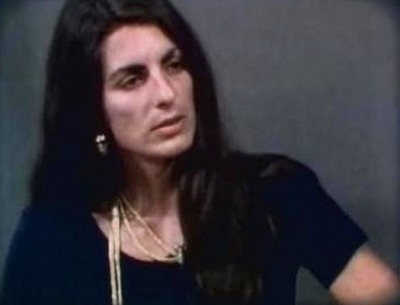
30-year-old anchorwoman Christine Chubbuck, who, on July 15, 1974, during technical difficulties during a broadcast, said these words on-air before producing a revolver and shooting herself in the head. She was pronounced dead in hospital fourteen hours later.
"Codeine? ...Bourbon?"

Tallulah Bankhead, actress, d. December 12, 1968. Outrageous, outspoken, and uninhibited are just a few adjectives that described Tallulah Bankhead's personality. Most people who met her never forgot her - and she made sure of that! At the age of fifteen, she stormed out of her home state of Alabama like an April tornado, determined to gain attention and recognition. She did achieve stardom working in virtually every medium - stage, screen, radio and television - but her fame was attributed more to her outrageous antics than for her work. Her biting wit, salty language and outlandish behavior – like the propensity for taking off her clothes at the drop of a hat – shocked and outraged just about everyone. On the other hand, she called everyone "dahling."
"This is no time to make new enemies."

These are supposedly the last words of the philosopher Voltaire, uttered when a priest asked him to renounce Satan. Voltaire had been a critic of the church for years and, according to some accounts, his last words, directed at a priest, were actually an angry cry: "For God's sake, let me die in peace!"
Apparently back in the day, the church wouldn't even let you die on your own terms. And it sure as heck wouldn't bury you in its cemetery after such a deathbed quote. Which is exactly why Voltaire's friends, in a final ironic twist, snuck in and buried his corpse in the Abbey of Scellières. Take that, church!
Apparently back in the day, the church wouldn't even let you die on your own terms. And it sure as heck wouldn't bury you in its cemetery after such a deathbed quote. Which is exactly why Voltaire's friends, in a final ironic twist, snuck in and buried his corpse in the Abbey of Scellières. Take that, church!
"My wallpaper and I are fighting a duel to the death. One or the other of us has to go."

Oscar Wilde said these last words, referring to the walls of a French hotel where he eventually passed away. What better final quote for a man who debated about the meaning of beauty and art for the better part of his life? However, whereas the first round was won by the wallpaper, in the end, Oscar Wilde fans tore the place apart and refurnished it in the style of a British flat. We like to imagine that somewhere in heaven Oscar Wilde was laughing manically as a mob armed with torches burned the offending French wall decoration.
"How's this for a headline? 'French Fries.'"

These are the last words of James D. French, just before he was executed via the electric chair. Get it? We'll take a break here, so everyone can re-read that joke and truly appreciate its genius. But, whereas we love a good pun as much as the next guy, the true reason this sentence is remarkable is the length to which Mr. French went to get himself executed. He was the last man to be sentenced to death in Oklahoma and the only person to get the electric chair in all of the US in 1966. In fact, his original sentence was life in prison, but French then murdered his cellmate, allowing him to share his joke, and the rest of the world to groan at one lousy pun. It's a win-win scenario ... sort of.
"One last drink, please."
Jack Daniel said these words just seconds before dying from a blood infection -- a problem that started when one morning he kicked his safe in anger and broke his toe. The moral of the story, printed on a 2006 marketing poster is: You should never go to work early in the morning. We think a better moral is: Use some of the whiskey you're producing by the gallons to disinfect your toe before it kills you. But, you know, that's just us.
"And now, for a final word
from our sponsor..."
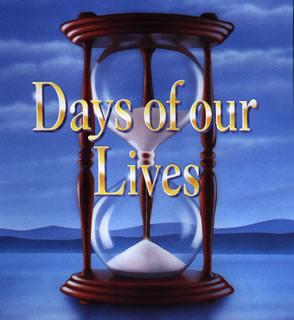
Not many people remember Charles J. Gussman, but he was the brains behind countless old-school radio shows, as well as the show Days of Our Lives - and even some episodes of Gilligan's Island. Gussman lived for media and went out the same way he ended most of his shows, placing the spotlight on whoever bankrolled his show.

Just one out of countless morbidly ironic last remarks, this one belongs to General John Sedgwick, who was trying to encourage his troops during the Civil War. If you can't predict what happened seconds after he finished saying this, you've never seen a comedy sketch. Suffice it to say that his troops were extremely motivated - if by "motivated." you mean scared sh**less because they just saw their leader sniped by the enemy.
"They couldn't hit an elephant at this distance."

Just one out of countless morbidly ironic last remarks, this one belongs to General John Sedgwick, who was trying to encourage his troops during the Civil War. If you can't predict what happened seconds after he finished saying this, you've never seen a comedy sketch. Suffice it to say that his troops were extremely motivated - if by "motivated." you mean scared sh**less because they just saw their leader sniped by the enemy.
"Only you have ever understood me... and you got it wrong."

Georg Wilhelm Friedrich Hegel was just one of the many philosophers who tried to create a logical system that would encompass all of existence. Apparently, he came pretty close. But, no one could follow his logic for long enough to make any sense of his claims about the universe. These were his last words to his favourite student before dying and leaving hundreds of philosophy majors to wonder what exactly he meant in his books. After which, they wondered what the hell they are going to do with a philosophy degree.
"Leave the shower curtain on the inside of the tub."

When you ask someone like Conrad N. Hilton, the man behind the Hilton Hotel Empire, if he has any final wisdom to share with the world, well, you kinda expect something a tad bit more profound than stuff your mom told you every time you took a shower. Then again, this is the family that gave birth to Paris Hilton, so maybe this isn't so bad after all.
"I should never have switched from scotch to martinis."

Humphrey Bogart was the equivalent of Harrison Ford, George Clooney and Johnny Depp all rolled up into one stone-cold, rugged piece of pure awesomeness. For someone as manly as he, there was no other way to end it all but denounce mixed, fruity drinks and join Jack Daniel in ordering another glass of good old whiskey, be it Scottish or American. We can only raise our glasses and join in a toast - a toast to all the memorable, funny last words ever uttered.
Via Asylum UK
To add your comments click on Links to this post here or below. It will take you to a stand-alone copy of this page. There, you'll find the comments box, so feel free to let 'er rip.What lies beneath...
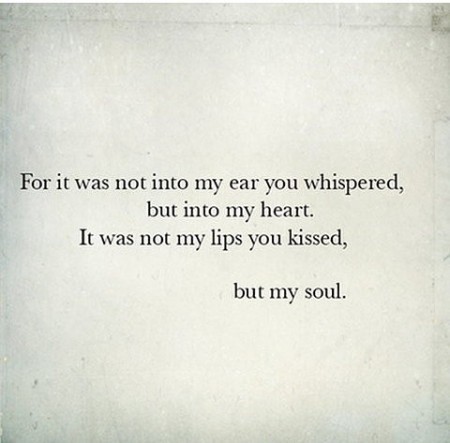
Via No One's Nemisis
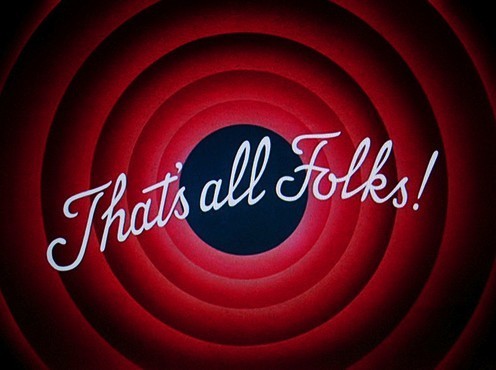
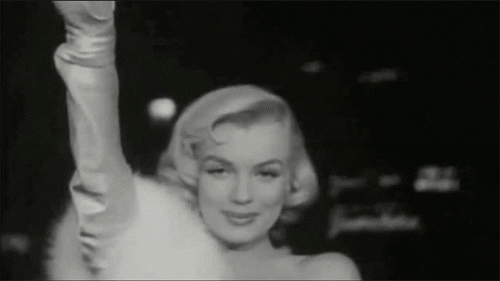

No comments:
Post a Comment